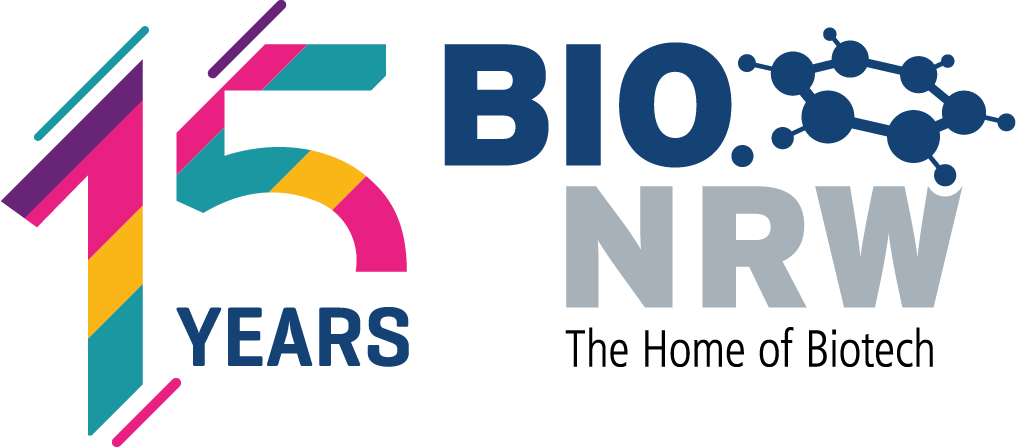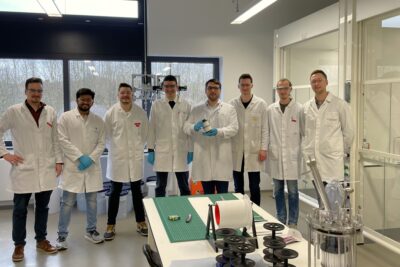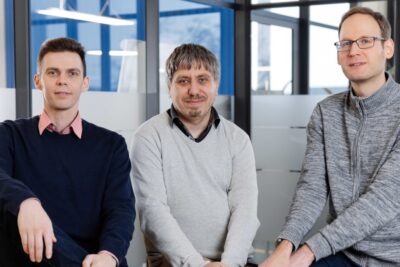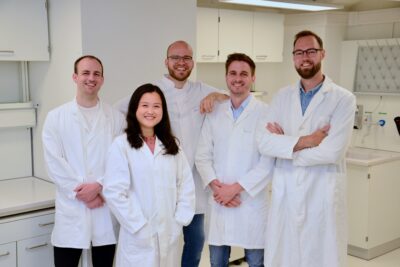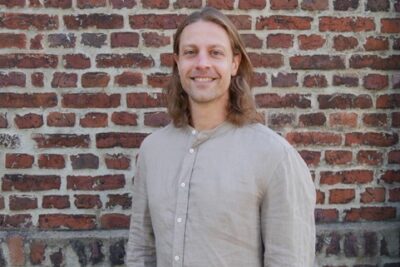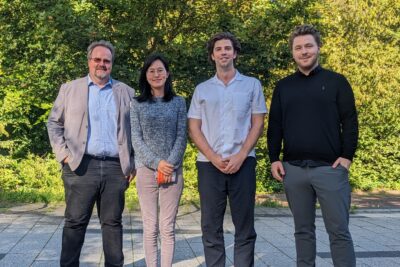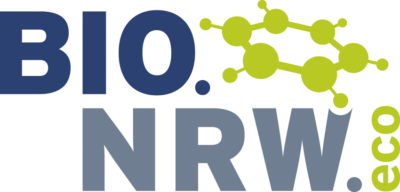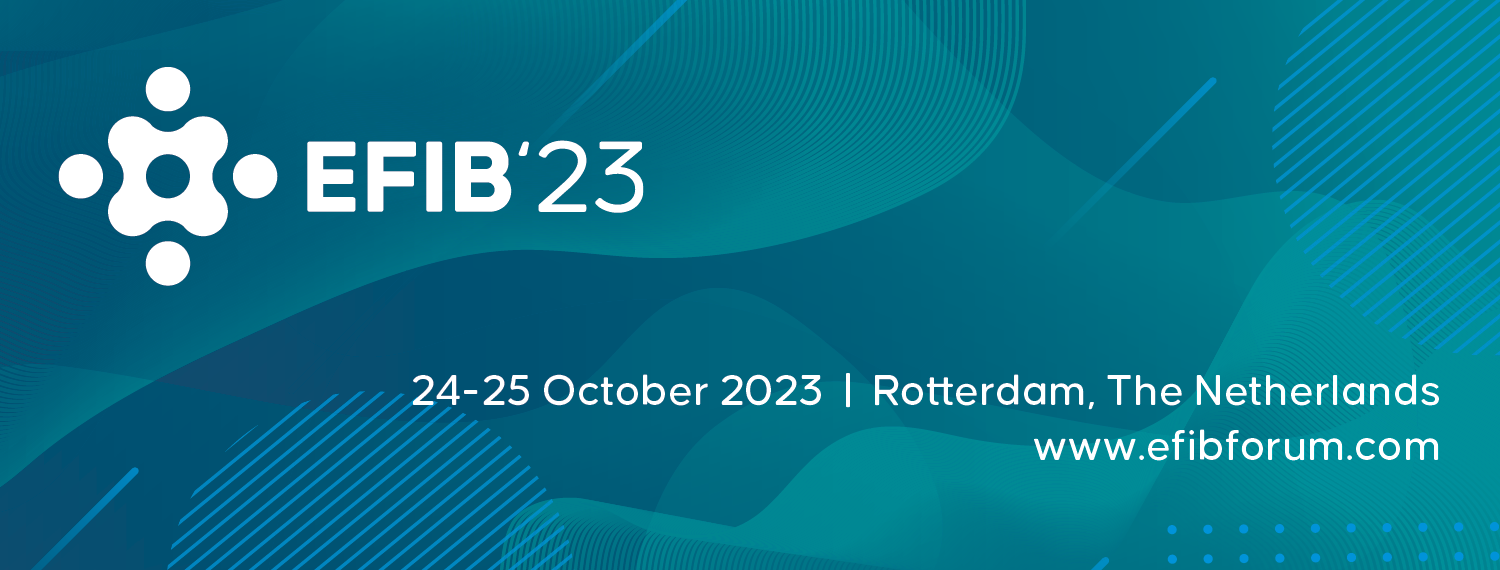
EFIB 2023: Industrial biotechnology for a sustainable and resilient global Europe
The European Forum for Industrial Biotechnology & the Bioeconomy (EFIB) is Europe’s primary conference dedicated to the economic and green contribution to Europe from innovation and manufacture within industrial biotechnology and the bioeconomy. For this year’s EFIB BIO.NRW has offered free start-up packages. We have received a lot of requests and we are now excited to introduce you to the founding projects and start-ups from NRW that are going to Rotterdam with BIO.NRW: Biothrust, LuminoGen, Sweethoven, Varuta und Verdancy.
 |
|
BioThrust is a start-up spin-off from RWTH Aachen University. The spin-off was founded in 2022 by Dr. Patrick Bongartz, Moritz Meyer and Konstantin Kurz from the Chair of Chemical Process Engineering of Prof. Matthias Wessling.
Learn more about what BioThrust does and where they want to go here:
What do we do?
The young company develops innovative bioprocess technology with a focus on gassing solutions for bioreactors. Particularly disruptive is the BioThrust membrane gassing module for a completely bubble-free supply of bioprocesses. Due to this novel gas supply, the yield of cell culture processes can be significantly increased. As a second product line, BioThrust offers the UniThruster as a conventional sparger for oxygen-intensive processes, which can increase the gas input by up to 200%.
Where do we want to go?
BioThrust’s vision is to develop bioreactor systems based on disruptive technologies that can be used to produce innovative drugs such as cell and gene therapies or novel use cases such as cultured meat much more efficiently. This could then make such products available to our society at significantly lower cost.
|
|
LuminoGen is a pre-seed Start-up team from RWTH Aachen University consisting of Dr. Martin Gruhlke (biologist), Dr. Jan Borlinghaus (biologist) and Business Development Manager M.A. Anatolij Baichenko. After a year of collaboration and participation in various accelerator programs, we successfully applied for the EXIST-Gründerstipendium to prepare for a spin-off in 2024.
Learn more about what LuminoGen does and where they want to go here:
What do we do?
The name LuminoGen is derived from the underlying technology, which is based on blue bioluminescent baker’s yeast created by genetic modification. Luciferin-luciferase systems are among the most sensitive systems for detecting substances with living cells via luminescent signals. The special feature of our yeast is its independence from the substrate luciferin, which normally has to be supplied from outside as “fuel” for the yeast to generate light with the enzyme luciferase. The independence from luciferin allows a cost saving of between 15-35% for these so-called bioassays.
Where do we want to go?
We are currently programming our yeast to respond to hormones, oxidants and antioxidants with blue light emission. Our assays can then help to identify potential hazards in the environment or in products at an early stage by providing analytical laboratories with more cost-effective and also more sensitive analytical products. In the medium term, we have already planned further assays to safeguard products and quality of life and would like to establish ourselves as a leading contact for individual problem solutions and assay developments.
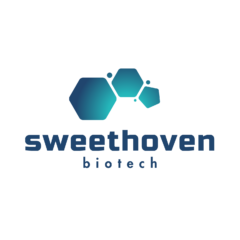 |
|
We are Sweethoven Biotech, an ambitious spin-off from the University of Bonn developing a dietary fiber-based sugar alternative. Our team combines microbiological expertise (Dr. Marcel Hövels (30), André Neff (31) and Jana Kniewel (26)) with business knowledge (Yun Kai Chua (26) and is additionally supported by Jannick Dülberg (33) and Jorge de Heuvel (30) in finance and sales.
Learn more about what Sweethoven does and where they want to go here:
What do we do?
As part of our research at the Institute of Microbiology and Biotechnology, we have discovered a biocatalyst that produces a sweet-tasting dietary fiber starting from renewable raw materials. We would like to place this dietary fiber on the sweetener market to improve the nutritional value of processed foods and contribute to a healthier diet. Unlike synthetic sweeteners, our dietary fiber has texturizing properties, making it suitable for baked goods and other foods in which sugar is used not only as a sweetener but also as a texturizing agent.
Where do we want to go?
We are currently producing a prototype of our dietary fiber in order to characterize it extensively and make it available to initial pilot customers. In parallel, we are working tirelessly on an application for EXIST transfer of research. This funding from the Federal Ministry for Economic Affairs and Climate Action would enable us to optimize the process, upscale to commercial scale, and gain regulatory approval for our sweet dietary fiber. The goal is to establish our company in the summer of 2024.
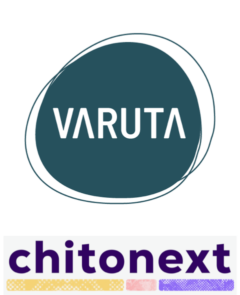 |
|
I’m Marius and I’ve been self-employed for 2.5 years with Varuta, from which in 2023 the new project ChitoNExt has arised.
Learn more about what Varuta/ChitoNExt does and where they want to go here:
What do we do?
I used to run after the tractors in the summer, I have always been interested in nutrition and the environment, and today I can combine these interests professionally with my own business, as Varuta and ChitoNExt are all about insects, proteins and bioplastics, as we biotechnologically extract the individual, very valuable components and offer them for biomedicine, as food and animal feed, and for the pharmaceutical, energy, packaging and textile industries.
Where do we want to go?
Secure access to sustainable raw materials and proteins to support environmental protection and people.
 |
|
Verdancy is an AgBioTech spin-off in the making from the Schwaneberg group at RWTH Aachen University – Institute of Biotechnology and DWI | Leibniz Institute for Interactive Materials. Nikola Mijailovic, a plant scientist, and CEO, believes that the focus on helping plants achieve exceptional levels of health is the key to regenerating the health of soils, entire farm ecosystems, and the communities that rely on them.
Learn more about what Verdancy does and where they want to go here:
What do we do?
Amid an ever-changing climate, we believe that plant protection products will maintain their significant role as tools to enhance plant health, therefore, we are working to improve their effectiveness and eco-friendliness. We do it by encapsulating their active substances in upcycled, non-toxic and fully biodegradable microgels, which protect and release them in controlled, programable manner. We decorate the outer surface of microgels with naturally occurring peptides that are engineered to act as anchors and stick the microgel containers on the leaf, preventing the wash-off by rain, thus reducing the risk of soil pollution and allowing more disease protection with less amount of active substance.
Where doe want to go?
Many active substances in biologicals are sensitive to environmental stress which reduces their field efficacy, while time-tested actives in chemical plant protection products can come with eco-tox problems. Both types of actives could truly benefit from our technology. In addition to leveraging it for development of proprietary formulations for crop protection, we’re pursuing collaboration with AgChem companies, offering them a platform to re-formulate existing products.
What to expect: 2 days of conference sessions (12 sessions, more than 50 speakers), 1:1 partnering meetings, start-up hour pitches, and an exhibition where you can learn more about industrial biotechnology and the bioeconomy.
At EFIB 2023, you can:
-
- Boost your network
- Acquire the latest industry knowledge
- Meet Europe’s best SMEs
- Explore the EFIB exhibition
About the event: The European Forum for Industrial Biotechnology & the Bioeconomy (EFIB) is Europe’s primary conference dedicated to the economic and green contribution to Europe from innovation and manufacture within industrial biotechnology and the bioeconomy. EFIB will take place for the 16th time and is organized by EuropaBio together with the local partners HollandBIO and ChemistryNL. The event will focus on the question of how industrial biotechnology and the bioeconomy support European competitiveness, and bring together professionals from across the value chain to discuss the progress being made. Participants include enterprises of all sizes as well as scientists, policymakers, regulating authorities, and global organizations.
The event will focus on the following themes:
Food, Feed & Nutrition |
Sustainable Biomaterials |
Bioprocess & Technologies |
Sustainable Finance |
Biomanufacturing |
Further information on the EFIB conference can be found here.
